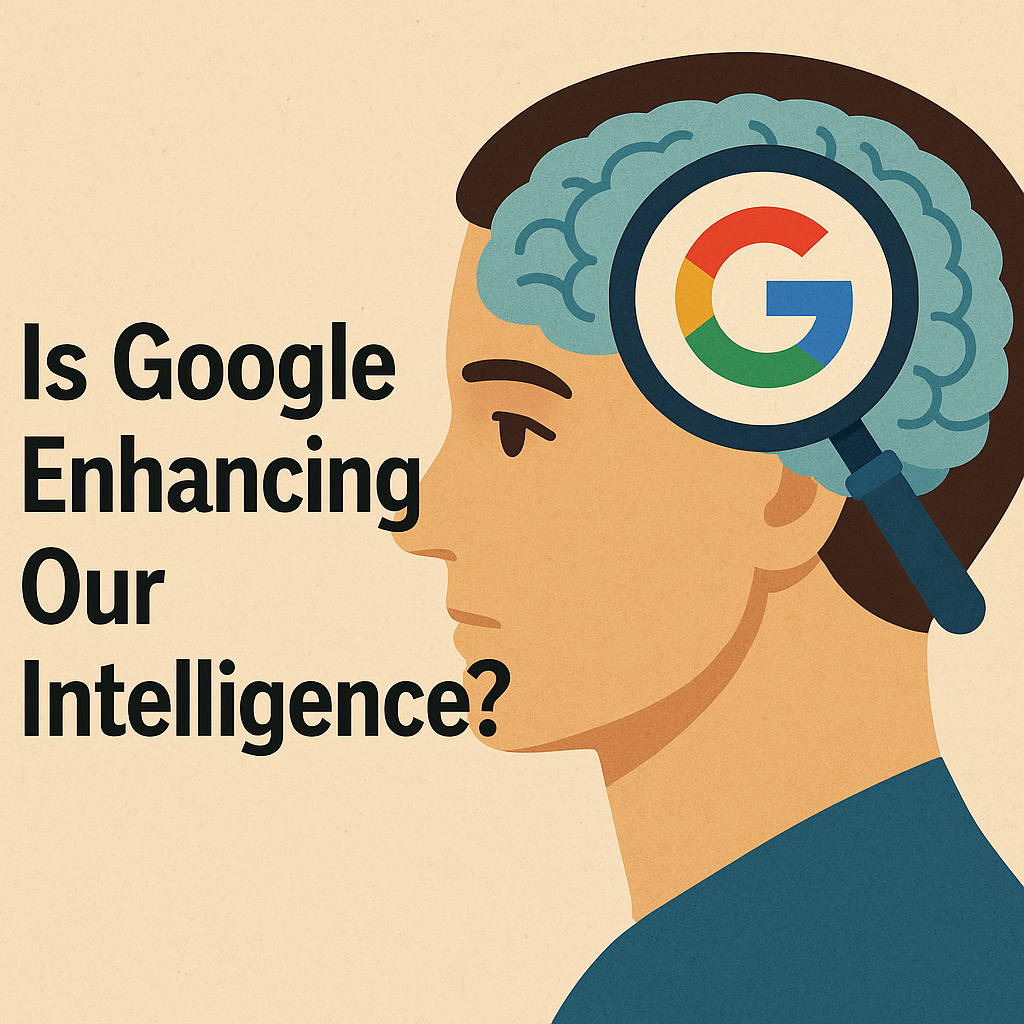“The deep reading that used to come naturally had become a struggle.”
There are many studies occurring on that specific topic, and many people have different opinions on it. It is a controversial topic, because everyone has their own reason on thinking that Google is making us smart or that it isn’t. These people, mostly scientist and writers, try to convince other people to agree with them by using different methods. Such people are Nicholas Carr and Jamais Cascio.
In the article “Is Google Making Us Stupid?” Nicolas Carr expressed his feelings and thoughts about what the internet was doing to us (humanity). He felt as if though it was “…tinkering with [his] brain…” and that it was causing his mind to change. He explained to us how, before he used the internet, he could read a lengthy article and go into deep thought into it; but since he started his usage of the internet, he couldn’t. He confessed that “the deep reading that used to come naturally had become a struggle.” Carr used a personal experience to make his reader aware of how he felt. He made his readers see it through his own eyes. In Jamais Cascio article “Get Smarter”, he states that we, humans, survive because our brains can change to meet any challenge. “And as good as our brains have become at planning ahead, we’re still biased toward looking for near-term, simple threats.” There Cascio is basically saying that we look for challenges to make our brains develop further.
The next method Carr used in his article was to point out all the good things about the internet. He called it a “great database”, giving it praise. He even said “the Web has been a Godsend to me as a writer.” But why did Carr give it praise after all that it has done to him? To prevent any kind of rebuttal from his other scientist and writers making different opinions. Cascio tells us that in the internet there is intelligence and that even though it is physically separate from us we are inseparable.
“The focus of out technological evolution would be less on how we manage and adapt to our physical world and more on how we manage and adapt to the immense amount of knowledge we’ve created.”
Carr doesn’t reveal his argument until the third paragraph of his article.
“…. [The] Net seems to be doing is chipping away my capacity for concentration and contemplation.”
His argument was straight and to the point, it was easy for the reader to understand. That is an important factor, because he is going to concentrate on those points for the remainder of the article. In order for his readers to understand is point, he made it very clear by just saying it and not making his reader guess what his argument was. That allows him to keep on expanding his arguments through other strategies. Cascio’s argument is revealed in the following: “The focus of out technological evolution would be less on how we manage and adapt to our physical world and more on how we manage and adapt to the immense amount of knowledge we’ve created.” He believes we need to focus more on what we already have than on what we want to create.
Carr used one specific metaphor ion the beginning of the fourth paragraph:
“Once I was a scuba diver in the sea of words. Now I zip along the surface like a guy on a Jet Ski.”
In that metaphor he was explaining how he was very intelligent, he could analyze and process things; now he just skims along things. This would’ve sparked some worry into the readers causing them to worry.
Carr also applied some science to convince the readers that his point is valid. Most people only trust in science to certify things, and once they know its true then they start believing it. Carr realized that: he used studies to convince these kinds of people. A study he used was one conducted by scholars at a university in London. Their studies showed that there were “new forms of reading” called the “power browse” being used. They also discovered that people go online to read easier and in a less traditional way. Comparisons with history showed that people are reading more, but with “a different kind of thinking.” They called it “a new sense of self.” Their conclusions were that the internet was making us weaker in out deep reading and deep thinking skills. Carr calls humans “mere decoders of information.” What did he mean by that? He meant that the internet is only providing us with information and our job is to know how to use it. But how do we “decode” it without knowing how to do it exactly.
“…developed written language significantly increased our functional memory and our ability to share insights and knowledge across time…with the invention of the printing press, the telegraph, and the radio.”
Among many other methods Carr used he used the mentioning of history. He spoke about the typewriter and the clock. A quote he used was “thoughts in music or language often depend on the quality of pen and paper.” The computer can only give you as much as you know. According to Carr, though, “the brain has the ability to reprogram itself…” This goes back to his argument that the internet can change the way someone thinks. Carr’s point in writing this article was that he wanted to tell the public that the internet was “diffus[ing] our concentration” and “scatter [ing] our attention.” Casico also used those objects to further explain his argument.
The internet is a controversial topic, because of all the opinions people have about it and all the studies occurring. Many arguments are in existence but there really isn’t anybody that can give an exact answer on if it’s making more intelligent or not. All we can do now is compare the past with the present and find at least some possible explanations that way.
Reflection: Connecting to Poetic Bipolar Mind
In many ways, the debate over whether Google enhances or diminishes our intelligence parallels the journey I explore within Poetic Bipolar Mind. My writing is often a battle between surface skimming and deep immersion — between being pulled by the constant noise of the digital age and yearning for the slow, raw clarity of reflection. Just as Carr’s “Jet Ski” metaphor reveals the loss of depth, I feel the same tension when rushing through words instead of letting them breathe.
Yet, Cascio’s perspective reminds me of what I strive for in my own creative practice: adaptability, resilience, and the shaping of meaning through the tools available to us. The internet may fragment attention, but it also allows spaces like Poetic Bipolar Mind to exist — places where words, art, and lived experience come together to carve meaning out of chaos.
Ultimately, this tension mirrors the human condition itself: our struggle to hold onto concentration and presence while living in a world that constantly pulls us elsewhere. My reflections, like Carr’s and Cascio’s arguments, circle back to the same question — not just “is Google making us smarter?” but “how do we preserve authenticity, vulnerability, and depth in an age that tempts us to skim?” For me, that answer lies in writing, in art, and in reclaiming the stillness needed to listen to my own voice.
References
Carr, Nicholas. “Is Google Making Us Stupid?” The Atlantic, July-Aug. 2008, www.theatlantic.com/magazine/archive/2008/07/is-google-making-us-stupid/306868/.
Johnson, Steven. “How the E-Book Will Change the Way We Read and Write.” The Atlantic, July-Aug. 2009, www.theatlantic.com/magazine/archive/2009/07/get-smarter/307548/.





Leave a Reply